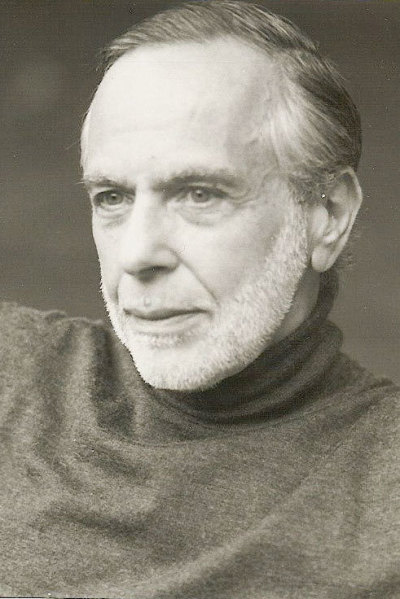How coronavirus changed President Trump and America

The media is piling on President Trump for not instilling confidence during the COVID-19 crisis: “There is no new Trump…. Don’t be fooled…. The new Trump is the same as the old Trump…. He’s incapable of leading us out of it.” “Trump shrugs off responsibility.” “He’s putting the blame on the Chinese.” “Trump is fundamentally unfit – intellectually, morally, temperamentally and psychologically.” These media talking heads could not be more wrong.
As I explained in my book, Psychologically Sound: The Mind of Donald J. Trump, his personality – replete with intelligence, imagination, consistency, charisma, organization, and optimism – is well-designed for contemporary America. I did not think his personality would evolve during his stay in the Oval Office. I was wrong, deeply wrong. He has changed, profoundly, and for the better.
During the March 17th Tuesday White House coronavirus press conference, a reporter asked if President Trump’s mood was more somber on Monday’s briefing. With great seriousness, Trump outlined how he had been solemn from the get-go – in January, restricting travel with China. Although he may genuinely believe that self-description, what he has progressively revealed of himself in this crisis is different.
Slow to Start
Trump’s initial, solitary, face-to-the-public, televised declaration of the coronavirus threat was a flat-of-feeling, several minutes, head-buried in the teleprompter, droningly read statement. He was autocratically alone. Who or what was aiding him and our nation was unknown – other authorities were absent. The public, usually represented by the press, was nowhere to be seen nor heard. The president was the embodiment of an impervious personality requiring autonomous control.
In the subsequent televised press conference, he shifted focus from himself and gathered a surrounding assembly of health experts, having already placed Vice-President Pence in a leadership role. This public shift to a committee highlighted a first sign of relinquishing control. Unfortunately, he continued to feel his dominance in the discussion was what the nation needed. By not allowing the experts center stage to explain the “if ands or buts,” and substituting his “hunches” and guesses, he disturbingly blurred understanding for Americans. Repeatedly talking of the stock market and the good economy with a misplaced optimism added to a feeling that he was out of touch with the national anxiety over lurking sickness and death.
Bringing In the Experts
In ensuing televised White House briefings, Trump consistently surrounded himself with faces not seen nor known by the public – experts in communicable disease, public health, and even the economy represented by the Secretary of the Treasury. By repeatedly featuring the same faces, the same voices, the same personalities he projected organized control. And importantly, he openly ceded control and respect to experts. The use of “I” increasingly was replaced by “We.” Like the owner of a new automobile whose personal boundaries quietly shift to the steel around them, Trump expanded his presidential self to incorporate these protectors. Once he did it, the public could do the same.
A Leader-Follower
President Ronald Reagan provided Dr. C. Everett Koop as a familiar, reassuring doctor in the HIV/AIDS crisis. President Trump offers the public and himself, the warm faces of Dr. Anthony Fauci, (“I’m a physician…I see patients”) and Dr. Deborah Birx (“I am data driven…for 36 years…. Dr. Fauci is my mentor”). This heartening Dioscuri of scientific honesty is consistently augmented by a host of equally impressive and regularly appearing health authorities. For these people, Trump repeatedly steps aside, literally and figuratively. Increasingly he supports them with every-day words, often as simple as “It’s bad…. It’s bad!” President Trump became what America needs in this blind crisis – a leader-follower.
Jocularity receded from Trump’s rhetoric. On Tuesday the only time he smiled was at a warm humorous comment by Dr. Fauci. His campaign reliance on spontaneous, impulsive commentary, based on self-assured “instinct,” has given way to respectful glances to experts to expand on press questions: “Let’s hear from the experts.” Unusual windows into his sadness appeared, especially when he spoke of America facing potential deaths like the tragic pandemic of 1918. Certainly, he had in mind his grandfather’s influenza death and its impact on his then twelve-year-old father and grandmother. The president was one of us. A private Trump melded into a public Trump. The “wall of family,” his ultimate in trust, opened its gates to others. And, interestingly, it is what he promised on the campaign trail in 2016, his expertise in choosing experts.
A Bipartisan America
These open walls are bipartisan – not just for emergency congressional legislation, and consultations with state and local governments, but also with media. In these White House briefings, Trump has attended to the press as never before. CNN praised President Trump as a “leader!” Political opponent Representative Ilhan Omar (D-MN) effused: “Incredible…. The right response…. Unprecedented leadership.”
The coronavirus crisis has not only shaped a better president in Trump – a leader-follower – it has awakened a sleeping giant – a unified America.
Dr. Sheldon Roth is a retired psychiatrist and professor of psychiatry at Harvard Medical School. He is publishing a book this Spring called, "Psychologically Sound: The Mind of Donald J. Trump."





















